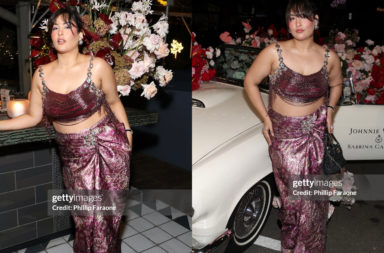In a recent development on LinkedIn, Manisha Kapoor, the CEO of the Advertising Standards Council of India (ASCI), has issued a stern warning to influencers who fail to adhere to guidelines when creating promotional content on the professional networking platform. Kapoor’s message emphasises the importance of transparent and upfront disclosure in promotional posts.

Influencers under scrutiny
LinkedIn, a platform known for its professional networking, often sees industry experts writing lengthy posts to commend or discuss various advertising campaigns. However, these posts can sometimes blur the line between organic content and promotional material. ASCI, which regulates advertising standards in India, is now closely monitoring this aspect of LinkedIn activity.

VectorsRUs
A tag sparks action
The catalyst for Kapoor’s warning was a post where an agency co-founder praised the advertising campaign of a prominent e-commerce company. Such posts are common on LinkedIn and can sometimes raise suspicion. In this case, a user tagged ASCI, expressing doubt about the post’s promotional nature. This suspicion was further fueled when others on the platform discussed the ad campaign in a similar promotional manner.
Also Read: Learn About ChatGPT Hallucinations And How To Fix Them
Recognising the promotional intent, Kapoor noted that the agency co-founder should have been aware of ASCI’s influencer disclosure norms. Subsequently, the user who posted the content added the hashtag ‘#ad’ to clarify its promotional nature.
Transparency matters
Kapoor identified two key issues in her message. Firstly, she stressed that both the ASCI code and legal requirements demand that disclosures be prominent and upfront. In the case of the e-commerce ad post, the word ‘ad’ was placed at the end of the content, rather than being presented upfront. Secondly, Kapoor emphasised that consumers should be able to discern whether a post is an advertisement before engaging with it. It is the influencer’s responsibility to clearly declare whether a post is organic or promotional, either by using the platform’s disclosure tools or by making an upfront declaration.

The liquor advertisement misstep
Another instance Kapoor highlighted involved a user on the platform identifying as a ‘marketing professional with a digital mindset’ praising a liquor brand. Once again, the disclosure ‘ad’ was relegated to the end of the post. Kapoor also pointed out that both the user and advertiser seemed unaware that promoting a liquor brand could have legal consequences.
Guidelines for LinkedIn influencers
In response to these incidents, Kapoor provided clear guidelines for influencers and content creators on LinkedIn:
- Do not promote products or services that are subject to advertising restrictions.
- Use appropriate disclosure labels such as ‘#ad’ or ‘#partnership’ at the beginning of your post, rather than burying them at the end.
- Familiarise yourself with the laws and regulations governing your profession and the products or services you promote.

Freepik
Manisha Kapoor reminded influencers that their reputation is at stake when they fail to adhere to disclosure guidelines. She aptly stated, “Why would you want to risk your reputation and be called out on LinkedIn? After all, ‘Jab ad kiya to darna kya.. Ad kiya koi chori nahin ki, Chup chup disclosure se chupna kya?'” It is a stern message to influencers on LinkedIn, urging them to prioritise transparency and integrity in their promotional content.


